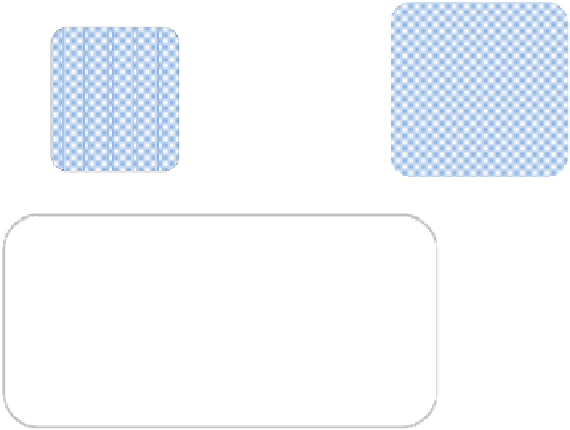Geoscience Reference
In-Depth Information
Complex Challenges for the Future
Complex Challenges for the Future
Problem Formulation
Hypothesis Generation
Needs Assessment
Technical Approaches
Problem Formulation
Hypothesis Generation
Needs Assessment
Technical Approaches
Analysis of Key Measures to Advance Knowledge
Analysis of Key Measures to Advance Knowledge
Knowledge
Environmental Fate
Impacts
Population Health
Exposure and Dose
Mechanism and Mode of Action
Implications
Costs
Feedback
Behaviors
Decision Options
Knowledge
Environmental Fate
Impacts
Population Health
Exposure and Dose
Mechanism and Mode of Action
Implications
Costs
Feedback
Behaviors
Decision Options
Data Acquisition
Ecologic
Biologic
Physical
Chemical
Epidemiologic
Socioeconomic
Behavioral
Informatics
Data Acquisition
Ecologic
Biologic
Physical
Chemical
Epidemiologic
Socioeconomic
Behavioral
Informatics
Data Modeling,
Analysis, and
Synthesis
Data Modeling,
Analysis, and
Synthesis
Outcomes
Balanced Informed Decisions
Improved Health
Cleaner Environment
Lower Costs
Outcomes
Balanced Informed Decisions
Improved Health
Cleaner Environment
Lower Costs
Systems Thinking to Assess Implications of Decisions
Applying Science that Anticipates, Innovates, Takes the Long View, Is Collaborative
Systems Thinking to Assess Implications of Decisions
Applying Science that Anticipates, Innovates, Takes the Long View, Is Collaborative
Translation and
Communication
Translation and
Communication
Systems Tools and Skills
Life-Cycle Assessment
Cumulative Risk Assessment
Social, Economic, Behavioral,
and Decision Sciences
Synthesis Research
Systems Tools and Skills
Life-Cycle Assessment
Cumulative Risk Assessment
Social, Economic, Behavioral,
and Decision Sciences
Synthesis Research
Synthesis and Evaluation
Sustainability Analysis
Solution-Oriented Approaches
Multiple-Criteria and
Multidimensional Tools
Uncertainty
Synthesis and Evaluation
Sustainability Analysis
Solution-Oriented Approaches
Multiple-Criteria and
Multidimensional Tools
Uncertainty
Applications, Decisions,
and Actions
Policy
Regulation
Social Change
Applications, Decisions,
and Actions
Policy
Regulation
Social Change
FIGURE 3-1
The iterative process of science-informed environmental decision-making and policy. The process starts with effective problem-
formulation, which drives both the experimental design and the selection of data to be acquired. Modeling, synthesis, and analysis of the data
are necessary to generate new knowledge. Only through effective translation and communication of new knowledge can science truly inform
policies that can generate actions to improve public health and the environment. An evaluation of outcomes is an essential component in deter-
mining whether science-informed actions have been beneficial, and it, in turn, adds to the knowledge base.



























































































































































































































































































































































































































































































































































































































































































































































































































































































































































































































































































































































































































































































































































































































































































































































































































































































































































































































































Search WWH ::

Custom Search